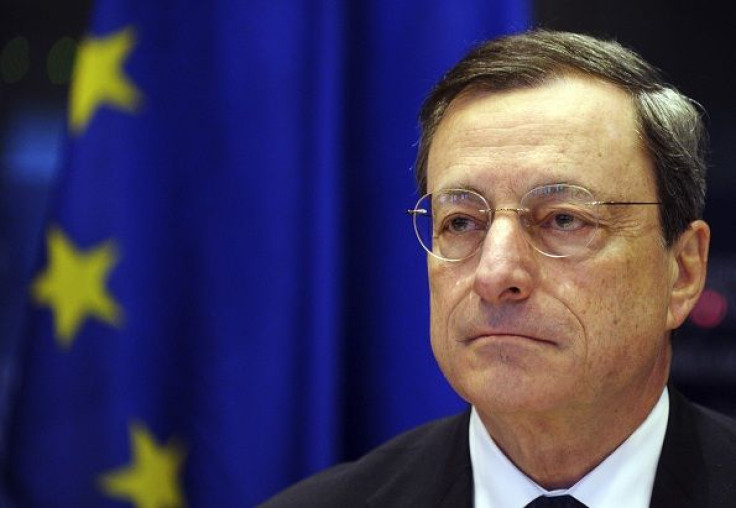ECB Ready To Use Non-Standard Policy Measures Including Negative Deposit Rates To Help Euro Zone, Draghi Says

The European Central Bank, or ECB, is open to using unusual or non-standard monetary policy measures, including introducing negative deposit rates, to boost the recession-hit euro zone economy, President Mario Draghi said on Tuesday.
“We will look with an open mind at these measures that are especially effective in our institutional setup and that fall within our mandate,” Draghi said in a speech in Jerusalem, Bloomberg reported.
“Some of those measures may have unintended consequences. This does not mean that they should not be used, but it does mean that we need to be aware of those consequences and manage them appropriately.”
The Frankfurt-based bank lowered its deposit rate to zero last July and Draghi, in recent months, has been holding out the possibility of charging lenders on their deposits by introducing a negative deposit rate.
“Another measure that we have looked at with an open mind was to consider the possibility of having a negative rate on our deposit facility,” Draghi was quoted as saying by Reuters.
However, there is resistance within the ECB against introducing negative deposit rates as some officials fear that such a move might prompt lenders to raise their lending rates to offset the additional costs. Such an outcome will undermine the ECB’s goal, which is to boost lending by banks and spur growth in the 17-nation euro zone.
Draghi said ECB’s monetary policy should result in domestic demand in the euro zone economy, while containing inflation and building confidence in financial markets.
The bank has been under pressure to stimulate the economy, while recent surveys showed little change in the euro zone’s economic decline, marked by a fall in French business activity, outstripping the decline in Spain and Italy.
Draghi said the ECB’s Governing Council has stressed that that “monetary policy will remain accommodative for as long as necessary,” adding: “In the period ahead, we will monitor very closely all incoming information on economic and monetary developments and stand ready to act if necessary,” Bloomberg reported.
The ECB, which has cut its main refinancing rate to a record low of 0.50 percent, has lent less support to the economy in comparison with its counterparts in the UK, U.S. and Japan, which have undertaken massive asset-purchase programs and introduced radical changes in their policies, according to Reuters.
Speaking of calls from the European Union to create a central banking union, as part of the efforts to stabilize the euro zone, Draghi said: “It should provide an answer to many of the challenges currently facing the euro area, including uneven credit conditions and the fragmentation of financial markets.”
© Copyright IBTimes 2024. All rights reserved.












